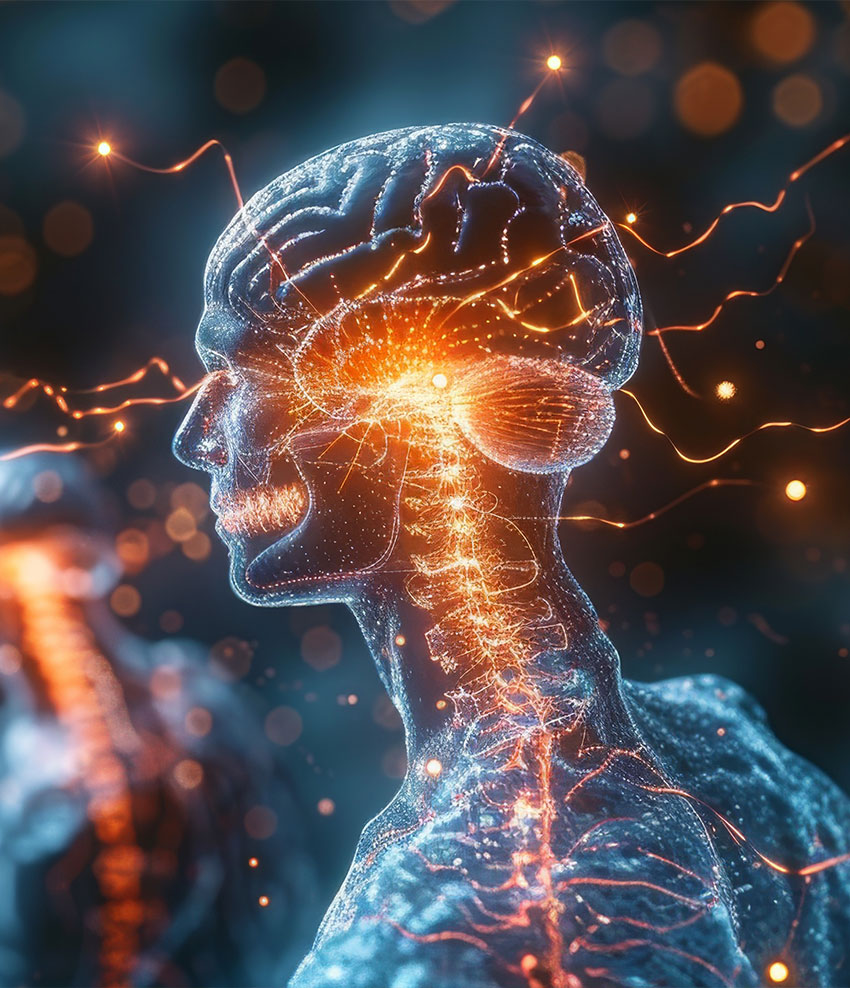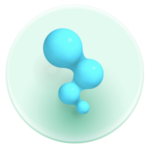
When you think about digestion, the vagus nerve might not be the first thing that comes to mind. However, these two seemingly unrelated aspects of the body are deeply interconnected. Keep reading to understand complex relationship between the vagus nerve and digestion, shedding light on how this connection can lead to significant improvements in digestive health and overall well-being.
Understanding the Vagus Nerve
The vagus nerve, named for its wandering path throughout the body (with ‘vagus’ being Latin for wandering), is the longest cranial nerve, originating in the brain and extending its reach to virtually every system. The vagus nerve’s primary role lies in regulating the parasympathetic nervous system, which oversees the body’s ‘rest and digest’ response, in contrast to the sympathetic nervous system’s ‘fight or flight’ reaction.
Connection Between the Vagus Nerve and Digestion
The fascinating interplay between the vagus nerve and digestion highlights its crucial role in maintaining gastrointestinal health. This nerve is instrumental in regulating the digestive process, facilitating a two-way communication between the gut and the brain, and proving vital for a range of digestive functions from the stomach’s food processing to the liver’s bile production and toxin metabolism. It directly influences the stomach’s acid and enzyme levels, essential for pathogen defense and nutrient absorption. Furthermore, the vagus nerve controls the liver’s biochemical processes, supporting fat digestion and blood sugar regulation, while also overseeing the pancreas’s enzyme secretion and insulin production to maintain metabolic balance. In the intestines, the vagus nerve coordinates peristaltic movements and modulates the gut microbiome, crucial for efficient waste elimination and overall gut health.
What are the signs of vagus nerve problems?
Vagus nerve conditions cause different symptoms depending on the specific cause and affected part of your nerve.
You may experience:
- Abdominal pain and bloating
- Acid reflux (gastroesophageal reflux disease, GERD)
- Changes to heart rate, blood pressure or blood sugar
- Difficulty swallowing or loss of gag reflex
- Dizziness or fainting
- Hoarseness, wheezing, or loss of voice
- Loss of appetite, feeling full quickly, or unexplained weight loss
- Nausea and vomiting
Navigating Digestive Challenges Through Vagal Optimization
Given its integral role in digestive homeostasis, it’s unsurprising that disruptions in vagal tone often manifest as a myriad of digestive disorders, including acid reflux, irritable bowel syndrome, inflammatory bowel disease, and small intestine bacterial overgrowth. However, beyond digestive woes, compromised vagal function precipitates a cascade of mental health challenges, ranging from depression and anxiety to sleep disturbances and cognitive impairments.
Here are various strategies to enhance the resilience and functionality of your vagus nerve:
- Alternate-Nostril Breathing: Incorporate this yogic breathing technique to promote relaxation and stimulate the vagus nerve.
- Cold Compresses: Applying cold compresses to your face and neck can activate the body’s parasympathetic response, benefiting vagal tone.
- Silence: Embrace moments of quietude to calm the mind and promote vagal activity.
- Deep Breathing: Engage in slow, deep breathing exercises to activate the relaxation response and support vagal function.
- Compliment Others: Expressing genuine compliments fosters positive emotions, which can stimulate the vagus nerve.
- Connect with Nature: Spending time in nature can reduce stress and enhance vagal tone.
- Diaphragmatic Breathing: Practice breathing deeply from the diaphragm to engage the vagus nerve and induce relaxation.
- Whole-Foods Diet: Prioritize a diet rich in whole foods to support overall health and vagal function.
- Exercise: Engage in physical activity within your ability to promote vagal tone and overall well-being.
- Sunlight Exposure: Spending time in sunlight can boost mood and support vagal nerve function.
- Gratitude: Cultivate an attitude of gratitude to promote positive emotions and enhance vagal activity.
- Humming: Humming, such as chanting “Om”, can stimulate the vagus nerve and promote relaxation.
- Laughter: Laughing frequently can activate the vagus nerve and promote relaxation.
- Calming Music: Listening to soothing instrumental music can induce relaxation and support vagal function.
- Uplifting Music: Choose music with positive, uplifting lyrics to enhance mood and stimulate the vagus nerve.
- Singing: Engage in singing or making joyful noises to activate the vagus nerve.
- Massage: Enjoying regular massages can promote relaxation and support vagal tone.
- Meditation: Incorporate meditation practices to reduce stress and enhance vagal function.
- Nostril Breathing: Practice breathing through the nostrils to engage the vagus nerve and promote relaxation.
- Prayer: Engage in prayer for personal healing and the well-being of others to promote positive emotions and vagal activity.
- Reflexology: Explore reflexology techniques to stimulate vagal activity and support overall health.
- Regular Movement: Stay active with regular movement to promote vagal tone and overall well-being.
- Express Gratitude: Express gratitude regularly to foster positive emotions and enhance vagal function.
- Smiling: Smile frequently to activate the facial nerves connected to the vagus nerve.
- Probiotics: Incorporate probiotic-rich foods into your diet to support gut health and vagal function.
Additionally, consider including foods rich in tryptophan, such as spinach, seeds, nuts, bananas, and poultry, to support gut-brain communication and reduce inflammation. Limiting excessive consumption of animal protein, particularly red meat and eggs, can help mitigate inflammation and optimize vagal regulation of blood pressure and heart rate.
Embracing the Holistic Harmony of Vagal Health
In the tapestry of human health, the vagus nerve emerges as a vital thread, weaving its influence through the intricate fabric of digestion and well-being. By embracing a holistic approach to vagal wellness, individuals embark on a transformative journey of self-discovery and rejuvenation. As the tendrils of the vagus nerve reach out to every corner of our being, let us nurture its vitality, fostering a harmonious symphony of neural health and digestive harmony.



